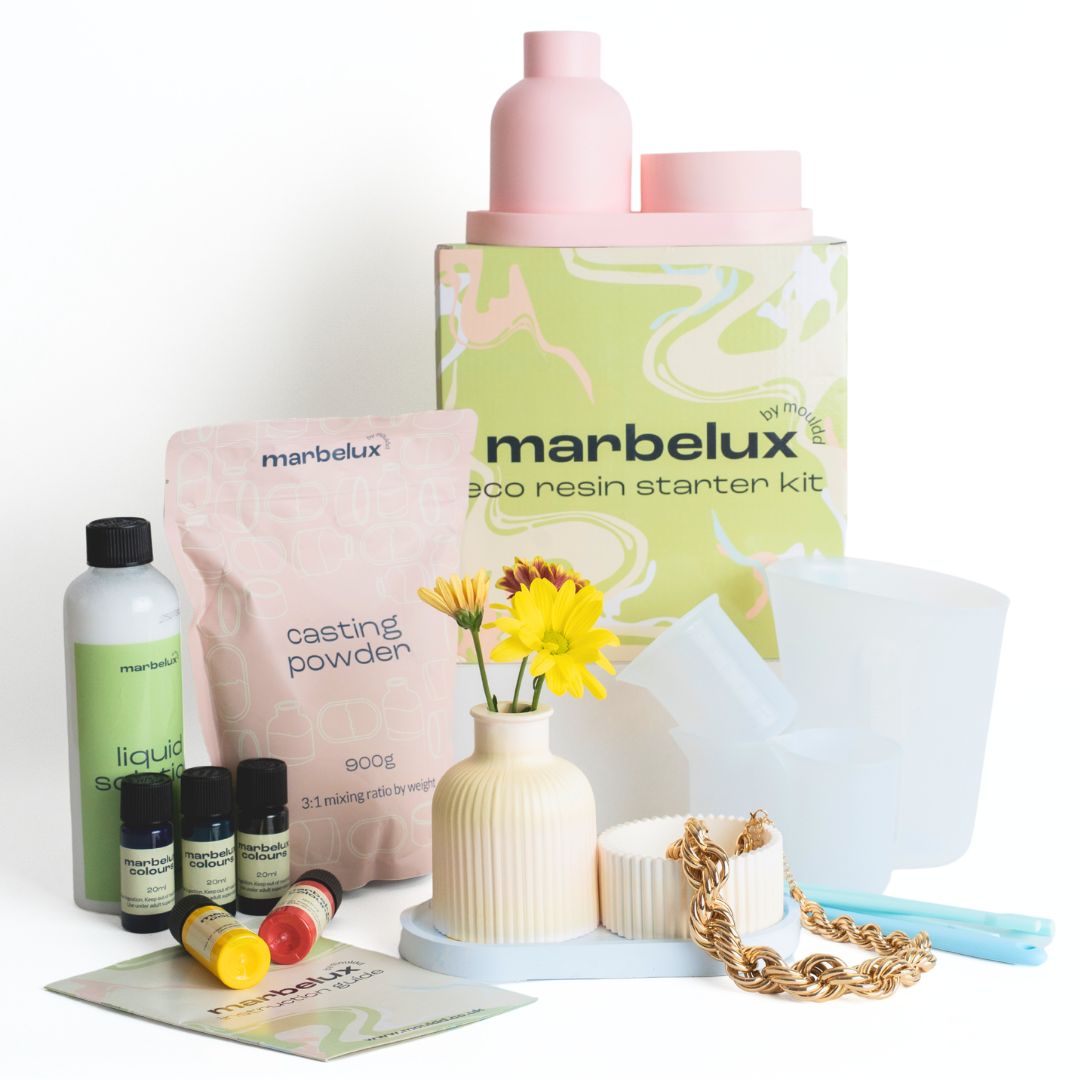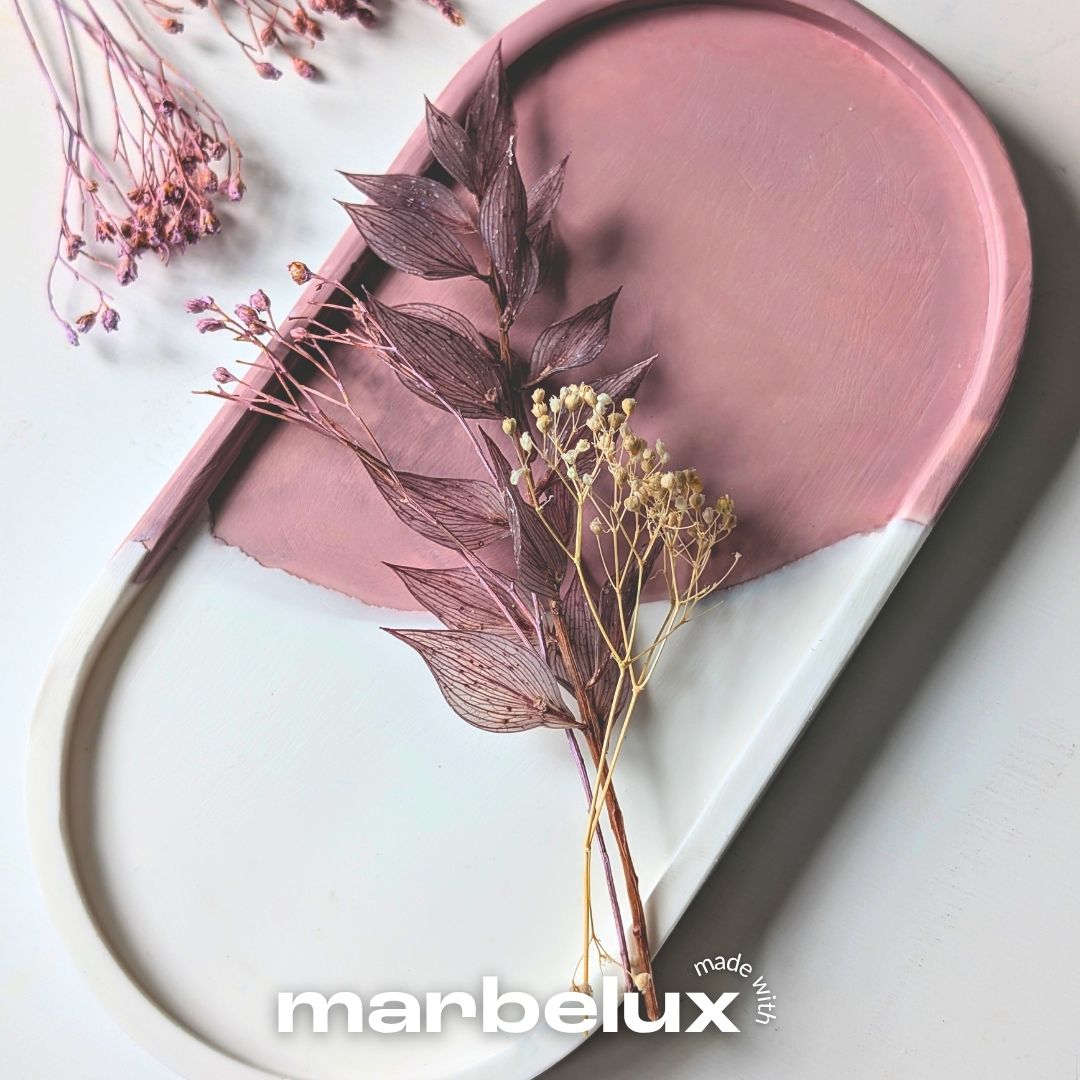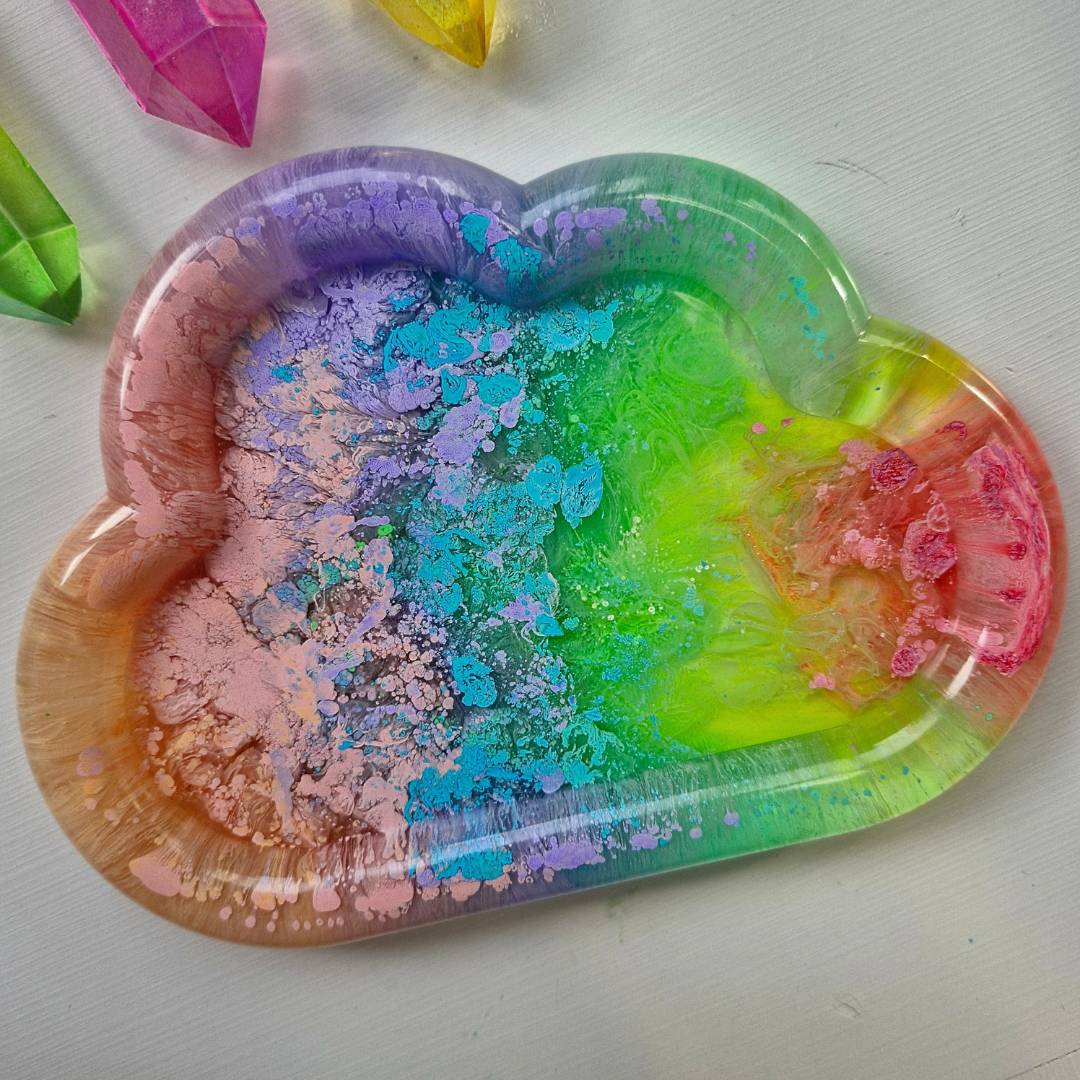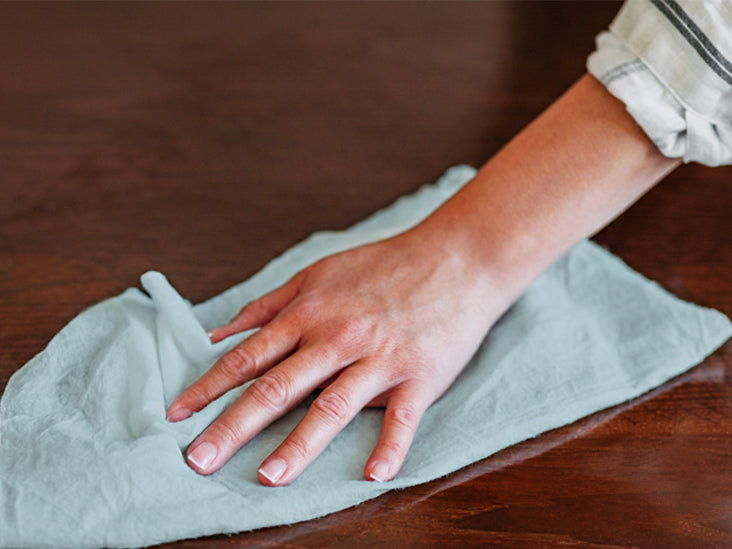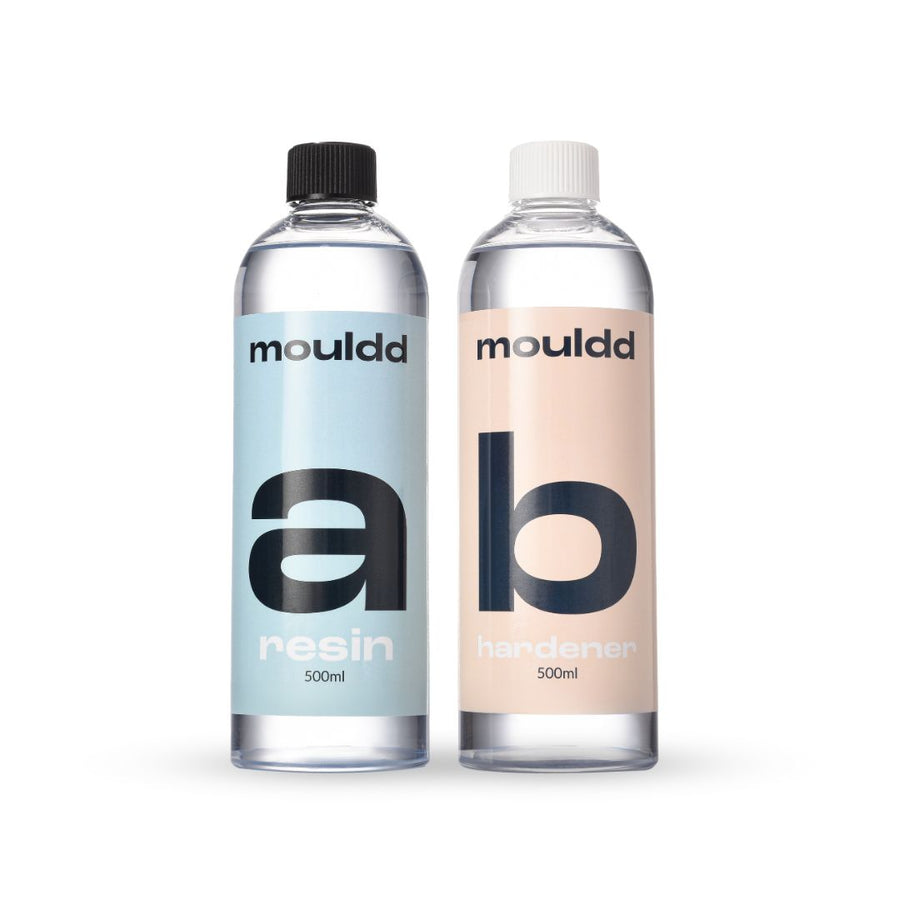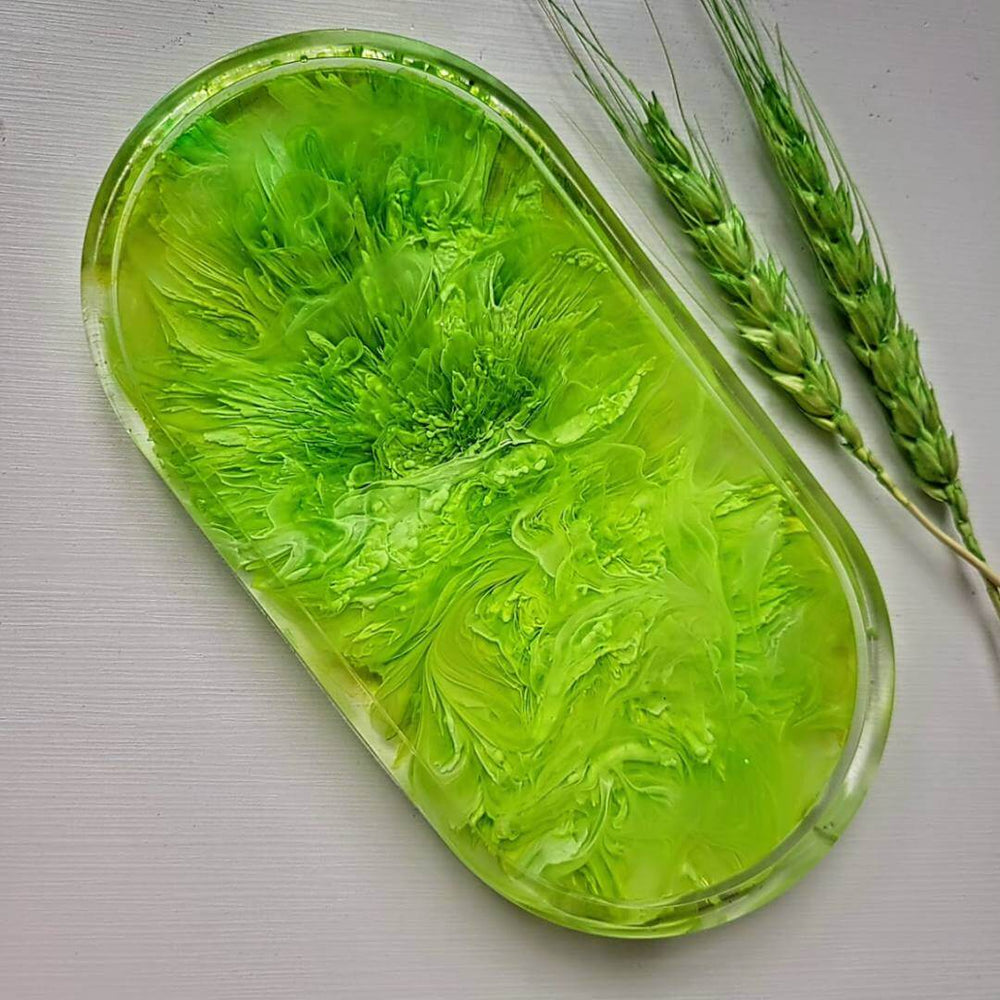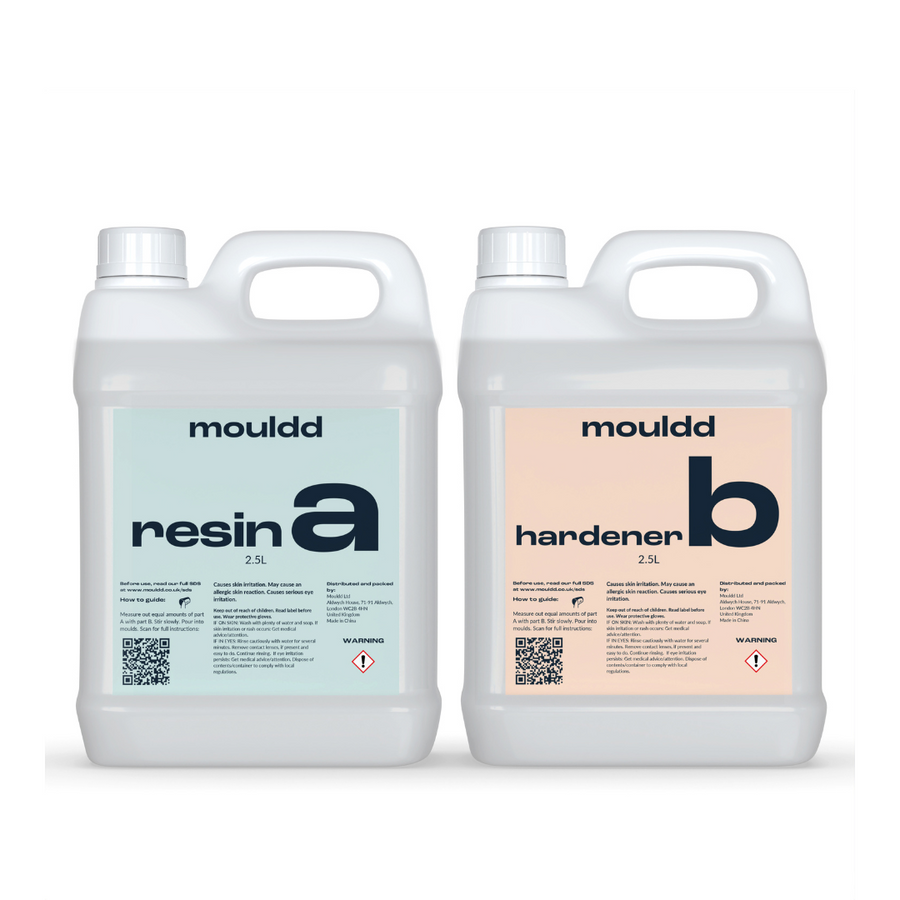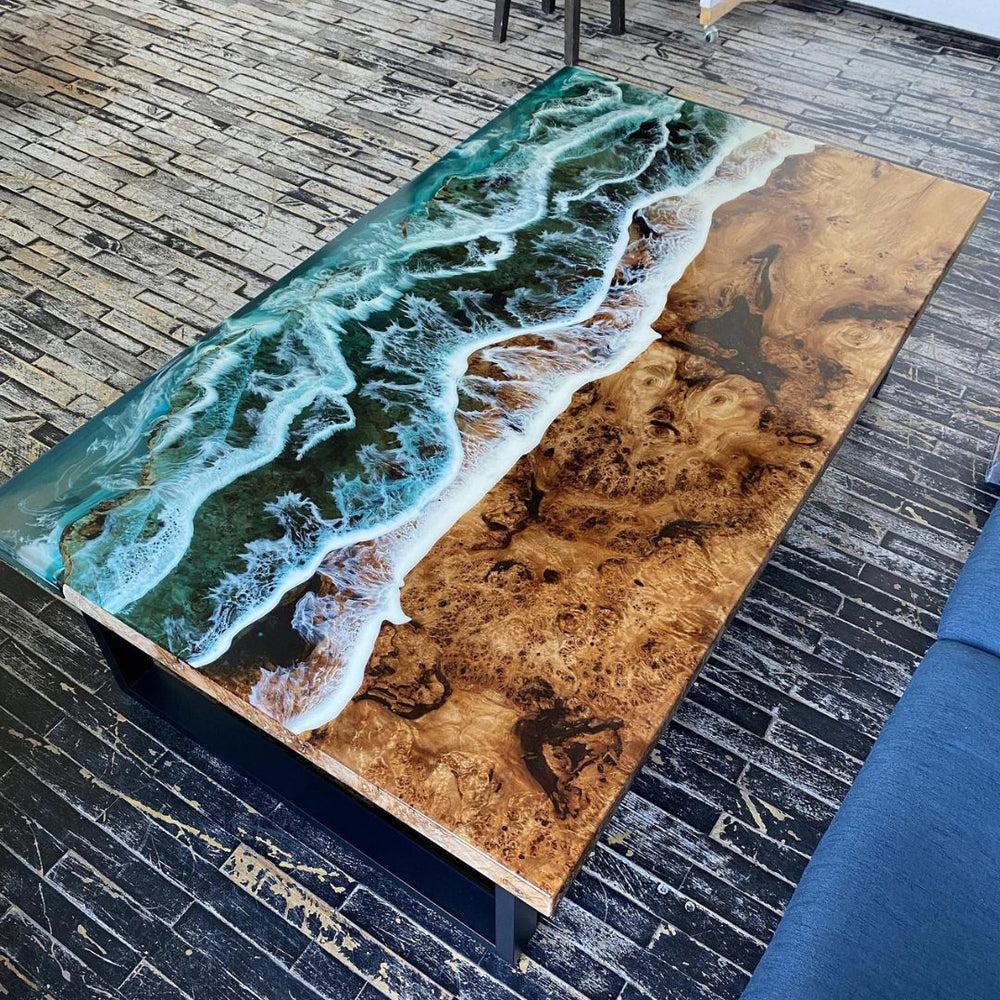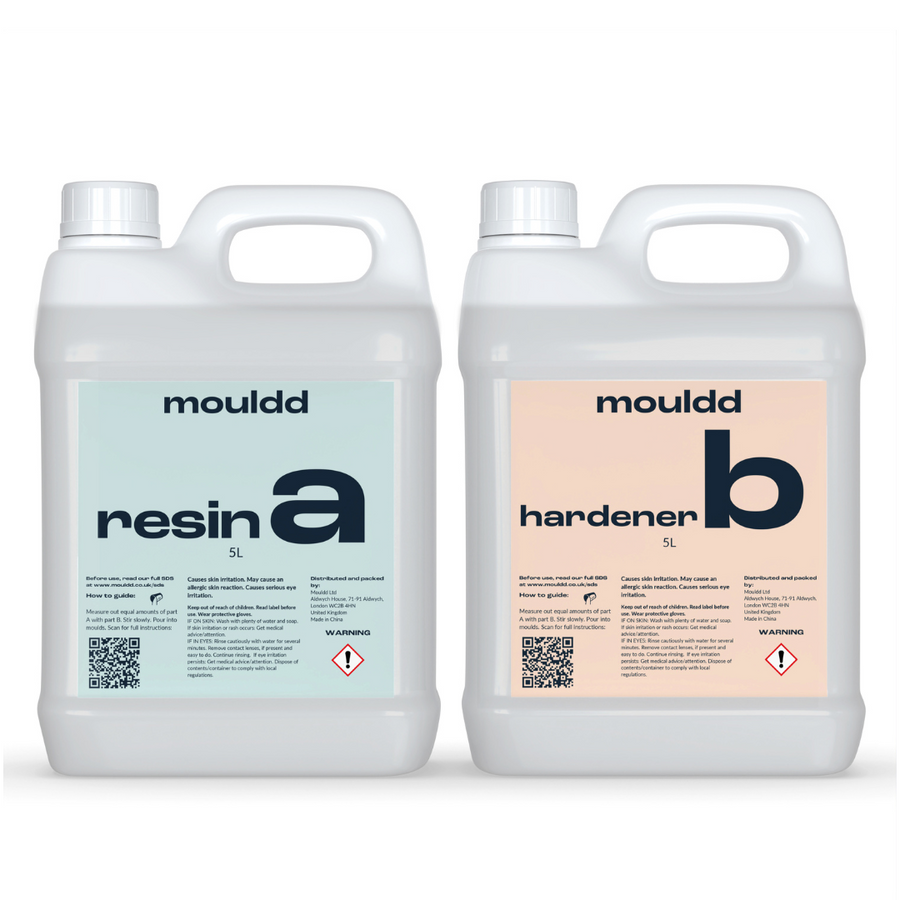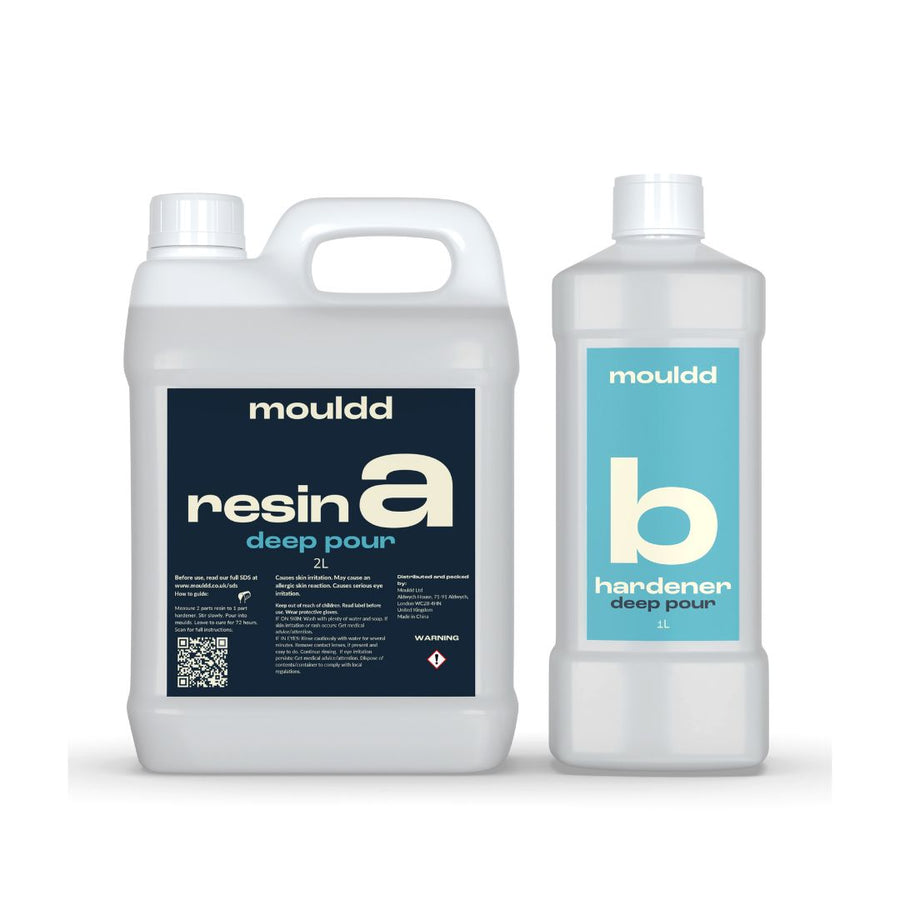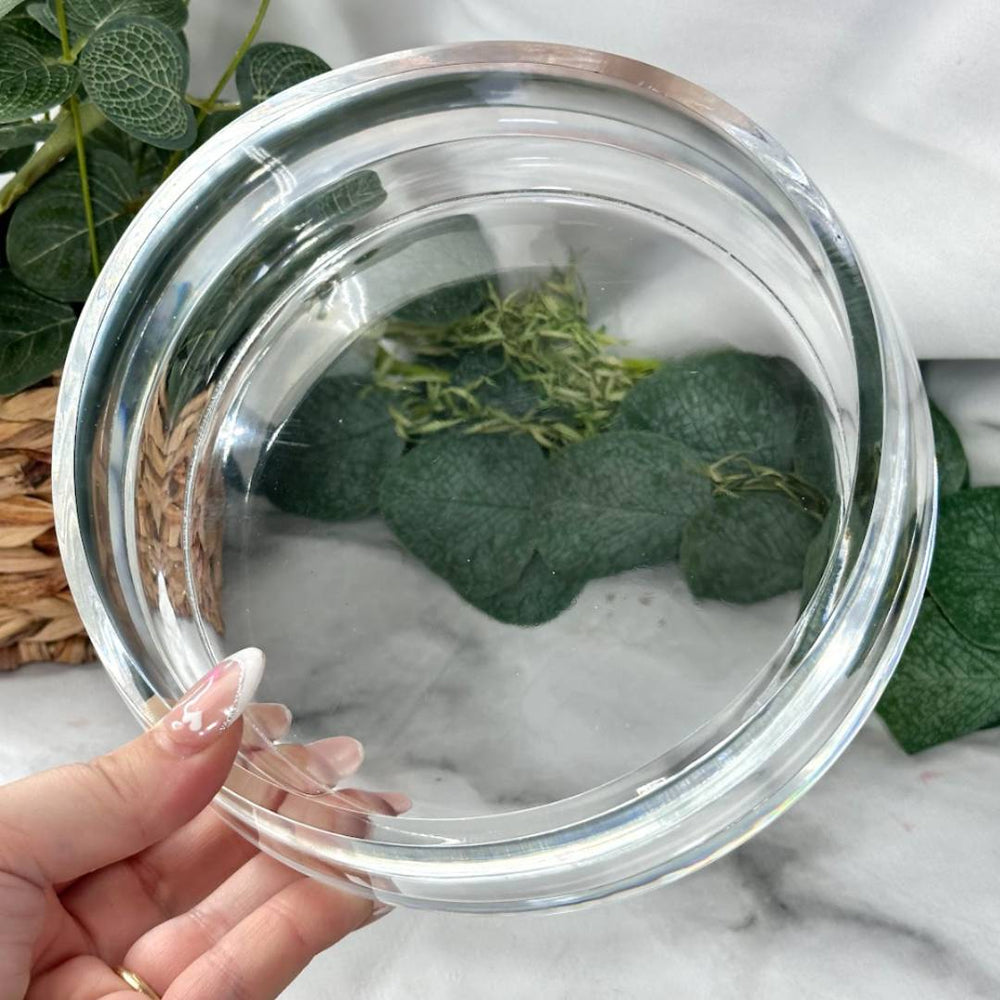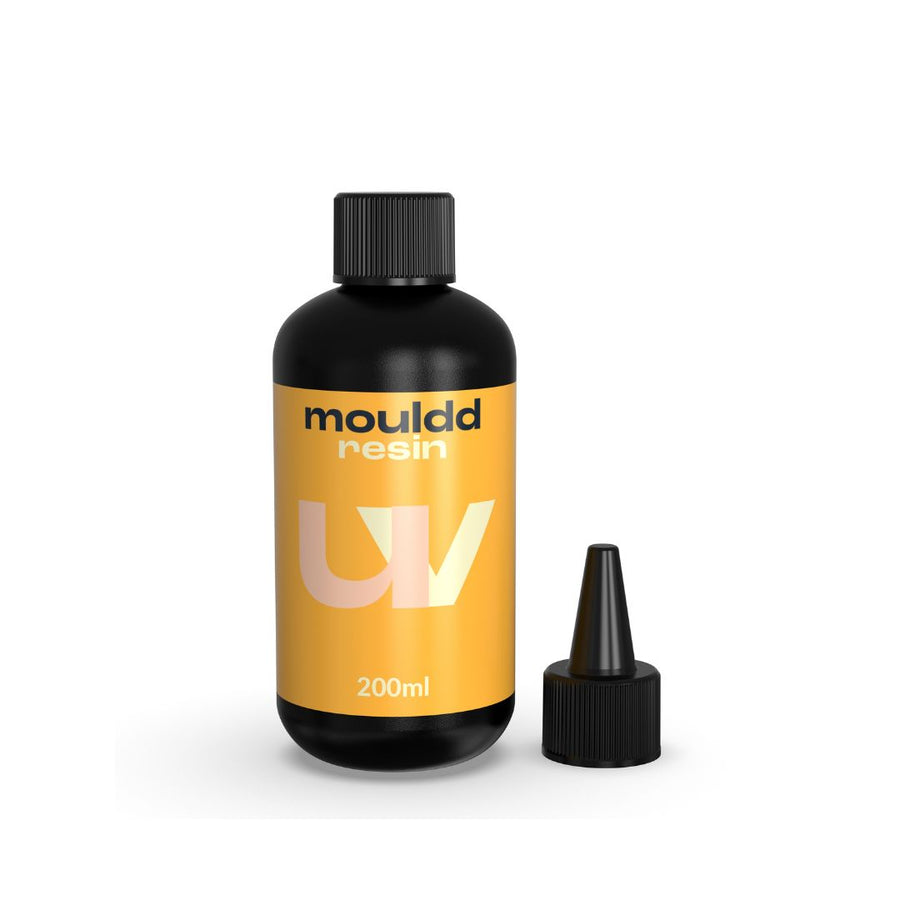How to clean resin off surfaces, tools and hands
Working with epoxy resin is an absolute joy and creates incredible pieces of art, but the clean up can be a bit sticky and messy if not done correctly. We will talk you through the best ways to clean up your tools and surfaces and answer some common clean up problems which come up!
What we will answer
1. How to clean uncured resin off your tools/jugs
2. How to remove cured resin off your tools/jugs
3. How to clean up accidental spillages
4. How to clean resin off your hands
How to clean uncured resin off your tools and cups
Firstly, we always recommend using plastic or silicone tools when working with resin. Everything which comes with our resin kits at Mouldd is made from silicone, this means resin will not stick to it when cured - meaning it is all reusable. However, being reusable means you still need to clean it properly after each use!
1.Wipe off excess resin
Wearing gloves, take some kitchen paper and wipe any excess resin from the sides and bottom of the mixing cups/tools. Throw any used kitchen paper into the bin and repeat this process until as much resin is removed as possible.
If you have a situation where you have too much resin remaining to simply wipe away, your best option is to leave it to cure. If you have used a plastic or silicone jug, once cured it should simply peel away. Skip to question two for next steps when cleaning cured resin.
2. Wipe with rubbing alcohol or acetone
We now recommend using a little rubbing alcohol or acetone to remove any remaining residue. Pour a small amount on the kitchen paper and wipe your container/tools. Alcohol and acetone are both solvents that will break down resin, making it easy to wipe off.
3. Repeat step two until clean
Still with your gloves on, use more rubbing alcohol or acetone until you feel all the resin has been removed.
4. Wash the mixing containers in hot, soapy water
Once all remaining residue is removed you can move on to washing your tools with some hot, soapy water. Your tools should now be clean and ready to go for next time!

How to remove cured resin off your tools/jugs
Leaving the resin on your tools and jugs to cure is the easier method when it comes to cleaning, it certainly uses less waste and can be incredibly satisfying . However, if you have not used plastic or silicone tools, leaving them to cure will make them unusable again.
1. Leave your resin to cure
We recommend covering your work surface with a cheap material which resin won’t stick to. For example an old vinyl table cloth or even shower curtain would be perfect for this. If you leave all your tools and jugs placed on this for 24 hours (depending on the cure time of your resin) when you return everything should be solid. A good tip is to leave a wooden lollipop stick to harden within the resin, this will help with the unpeeling.
2. Peel off and remove the cured resin
Now that it has cured you should find the resin will simply peel off the jugs and tools. To loosen the resin in the jug simply flex the jug in your hand and it should start to peel away from the sides. If you have left a lollipop stick to harden within the resin, pulling on this should bring out the bulk of the cured resin.
3. Wipe with rubbing alcohol or acetone
If there is any remaining resin which you are struggling to remove, a small amount of rubbing alcohol or acetone on some kitchen paper and wiping it down should remove it. For anything which is being really difficult, leaving it to soak in some acetone will break it down.
4. One final wash down
Finally, a good wash with some hot, soapy water will leave your tools and jugs good as new for your next project.
How to clean up accidental spillages
How to clean up a spillage will depend on the surface, how long it has been there for and the amount. We recommend using kitchen paper to wipe up as much of the resin as possible. Once that is done an anti-bac wipe followed by rubbing alcohol on some more kitchen paper.

How to clean resin off your hands
How to clean the resin of your skin will come down to the type of resin that you have used. It is important to read the safety information which comes with the particular resin you have bought. Our resin has been formulated in a way to try and make it less harmful when it comes in contact with your skin. We recommend wiping off any resin with kitchen paper and then quickly followed by hot, soapy water. Remember, you should always wear gloves when working with resin, this is the best way to ensure resin never comes in contact with your skin.


